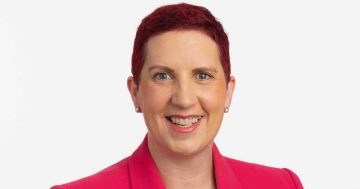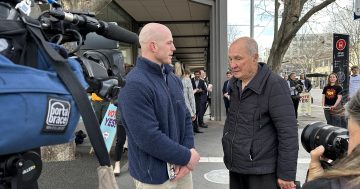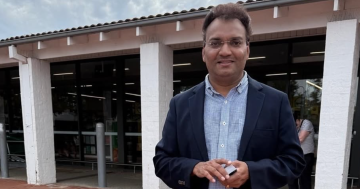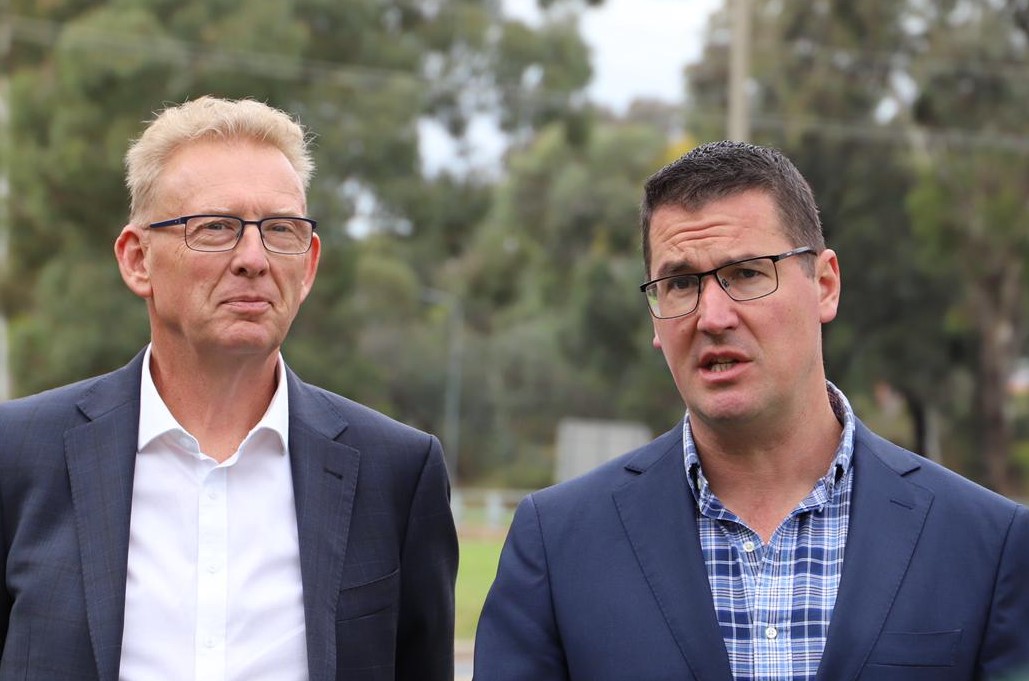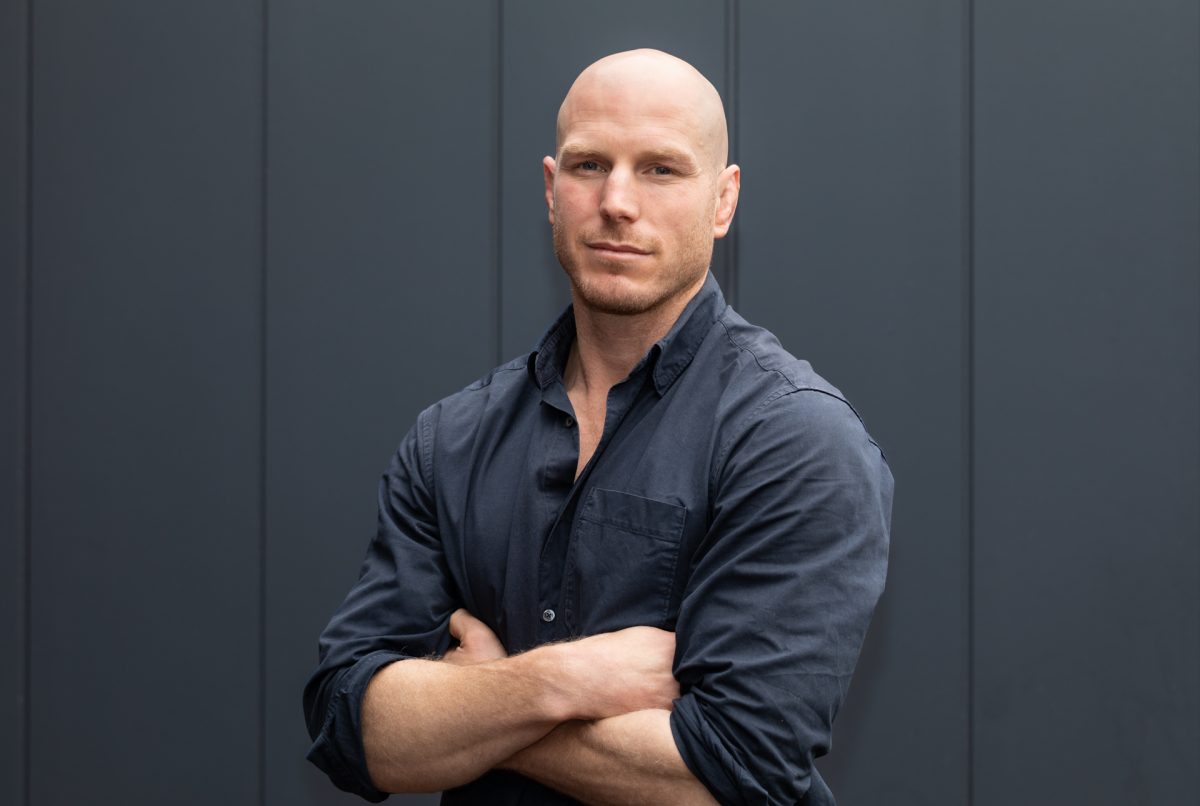
Independent Senate candidate David Pocock looks likely to become the ACT’s second senator. Photo: Michelle Kroll.
After a lengthy and exhausting campaign, one of the least likely outcomes in the ACT’s electoral history appeared to be in the offing: if David Pocock dislodges Zed Seselja for the ACT’s second Senate seat, it will be the first time since 1975 that Canberra has no federal Liberal representation.
At the close of counting last night, the independent and the sitting senator were neck and neck, with a margin of just under 2000 primary votes as the count see-sawed between the two.
The crucial difference will manifest itself in the preferences as the count goes on. Senator Seselja is likely to draw only on preferences from United Australia Party candidate James Savoulidis and a handful of minor candidates, while Mr Pocock will benefit from the Greens’ 10.5 per cent share of the vote, Kim Rubenstein’s 4.5 per cent and a plethora of second preferences from Katy Gallagher.
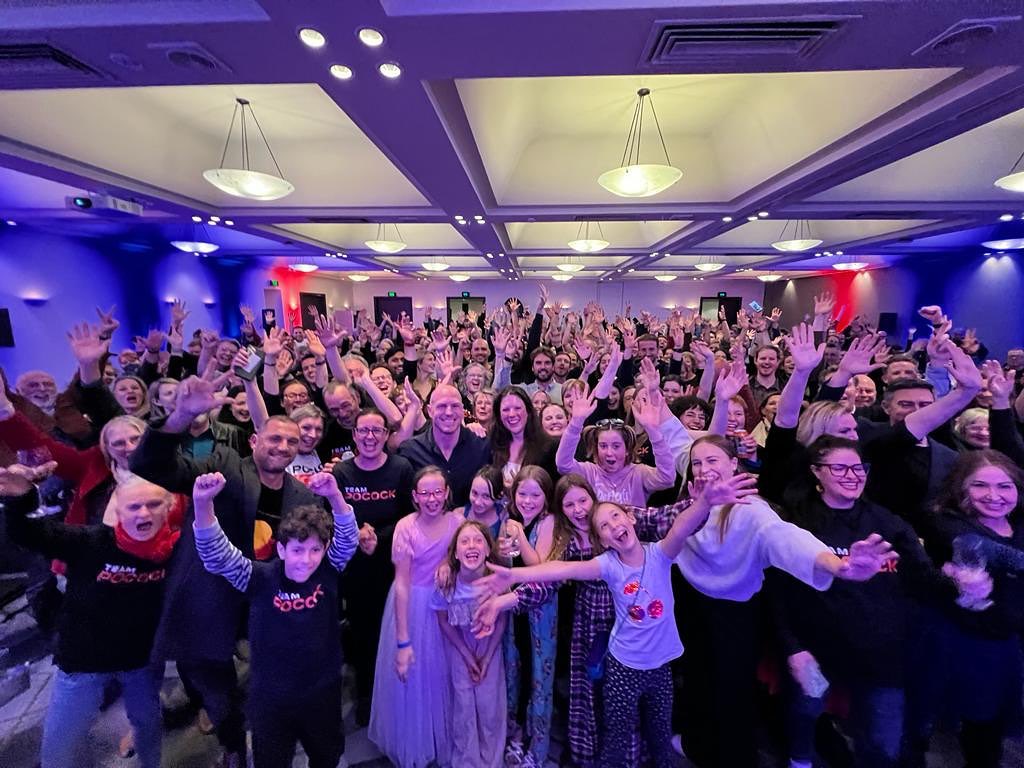
A huge crowd celebrated at David Pocock’s election night event. Photo: David Pocock Facebook.
Despite some ripples of concern about a fractured progressive vote, it was clear relatively early on that Senator Gallagher’s quota was safe. She will become a senior cabinet minister when she is sworn in at Government House tomorrow with the new Prime Minister, Anthony Albanese.
The Senate count will take days if not weeks to finalise and it’s still mathematically possible, if very unlikely, that Senator Seselja could squeak through.
The mood was sombre at the Liberal Party’s election event at Realm Hotel last night.
Region Media arrived at 9 pm as previously arranged with Senator Seselja’s staff and was immediately asked to leave the room after being told that no media were allowed inside. No Canberra media were permitted to enter despite multiple attempts to report on the event.
It was a very different scene a few kilometres away at the QT, where hundreds of ecstatic Pocock supporters jammed two ballrooms and key campaign staff were in tears of joy and disbelief at the size of the primary vote.
Mr Pocock told Region Media earlier in the evening he hoped the success of independent candidates across the country would demonstrate a need for change in “how politics is being done” in Australia.
“I think you’re seeing people being sick of being taken for granted, sick of the big issues being politicised by both sides of politics,” he said.
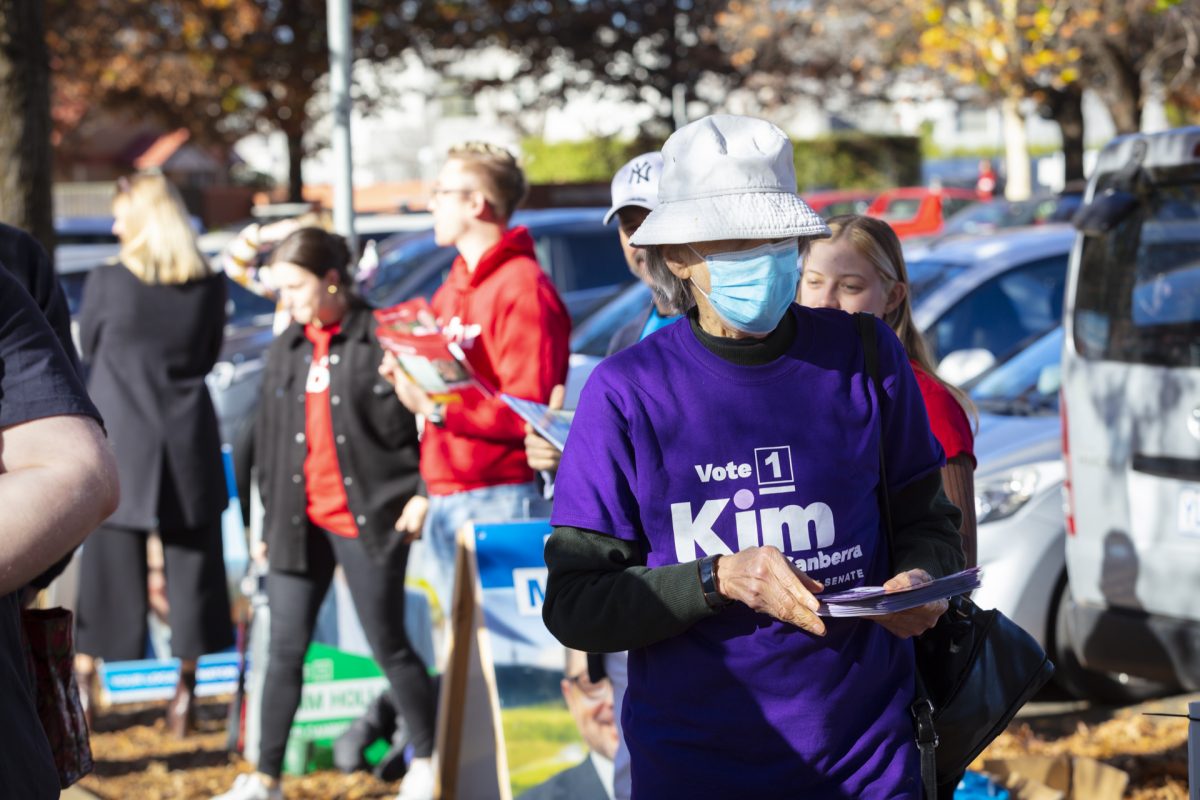
Election Day at Lyneham Primary School. Photo: Thomas Lucraft.
Independent Kim Rubenstein and Green Tjanara Goreng Goreng were also upbeat and positive about being part of a wave of change despite not receiving the primary votes they’d hoped for.
Professor Rubenstein hoped that no matter who won the Senate race, some of her policies, including a climate compact and greater representation for the ACT in the Senate, might be adopted.
Dr Goreng Goreng was also enthusiastic about the mood across Canberra.
“There’s a lot of people in Australia who don’t want the Liberals or this Prime Minister. In the end, that’s what it’s about, they’ve seen too much they don’t trust,” she told Region Media.
“You lie in the bed you make.”
It was apparent early in the night that all three Labor candidates in the House of Representatives had been returned easily.
Although the Greens could not replicate the tidal wave of support they received in the ACT local elections, much of Labor’s competition came from their local partners rather than the Liberals, whose candidates ran virtually unnoticed.
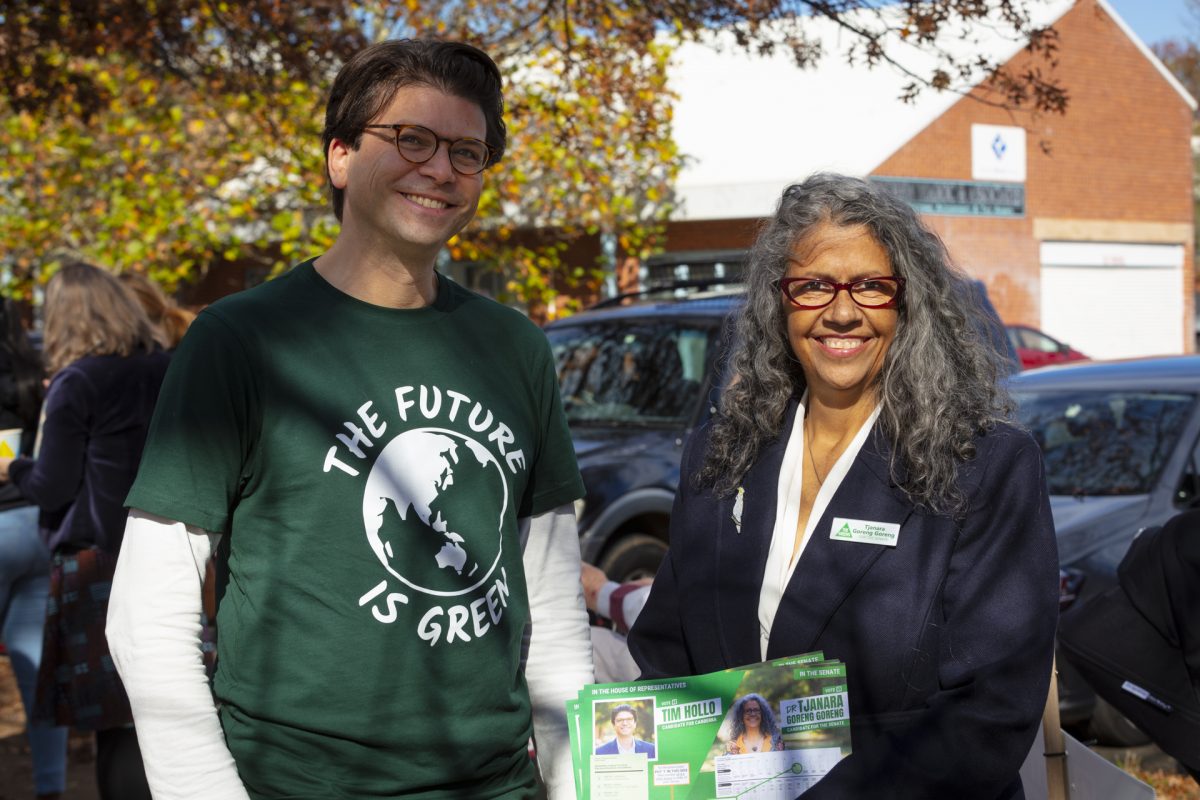
Tim Hollo and Tjanara Goreng Goreng voting at Lyneham Primary School. Photo: Thomas Lucraft.
In the central seat of Canberra, Alicia Payne will comfortably retain her seat but faced an 8.4 per cent swing away from her by the close of counting. High profile Greens candidate Tim Hollo, who had hoped he might be able to capture the seat, polled 26.9 per cent, well ahead of Liberal Slade Minson on 19.9 per cent.
In the southern Canberra seat of Bean, David Smith has benefitted from a 5.5 per cent swing towards Labor. Frequent candidate Jane Hiatt sat on 29.6 per cent of the vote in what’s usually Liberal heartland for the ACT, while Greens candidate Kathryn Savery’s 14.6 per cent of the vote is likely to ultimately benefit Mr Smith.
While not troubling the result, independent Dr Jamie Christie received a noteworthy 8.1 per cent of the vote, making some early waves with a swing in Norfolk Island, which is part of the federal electorate.
Andrew Leigh also has a large margin in Canberra’s north with a 5.6 per cent swing towards Labor in Fenner. Greens candidate Natasha Sojis garnered 16.7 per cent of the vote at the close of counting and Liberal Nathan Kuster received 27.6 per cent of the total. It will be Dr Leigh’s fifth term in the House of Representatives.













